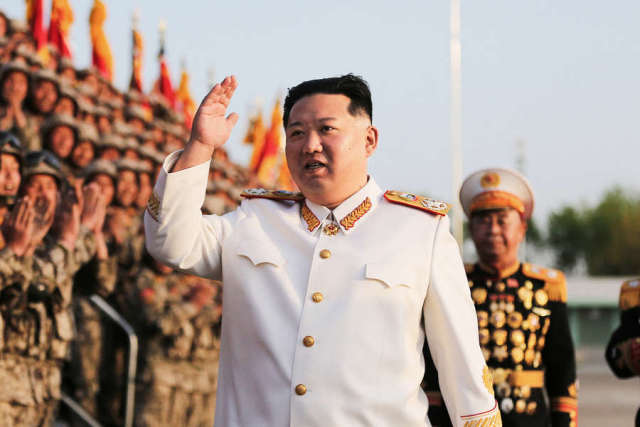Korean scholar Asmolov said that nuclear weapons have ceased to be a "last resort" for the DPRK
The DPRK began to restore the Pungeri nuclear test site, and the country's leader Kim Jong-un said that he would "accelerate the development of a nuclear arsenal." In turn, South Korea purchased anti-missile systems from the United States and tested its own ballistic missile. Interviewed by "Gazeta.En" experts believe that an escalation of the missile arms race has begun on the Korean peninsula, which could potentially affect the interests of China and Russia.
The armed forces of North Korea have begun to restore the Pungeri nuclear test site, the portal 38 North, which specializes in North Korean research, reported. Earlier, during the parade dedicated to the 90th anniversary of the Korean People's Army, the country's missile systems, including Hwasong-17 heavy ballistic missiles, were demonstrated.
"The nuclear forces of our republic must be fully prepared to fulfill their responsible mission and at any time activate their unique means of deterrence," Kim Jong-un told the parade participants.
Almost simultaneously, neighboring South Korea tested medium-range ballistic missiles, launching them from the submarine KSS-III ROKS Dosan Ahn Changho. Two missiles were fired from the boat with an interval of 20 seconds and flew more than 400 km. In addition, it became known that South Korea will purchase Standard Missile-6 ship interceptor missiles in the United States for a total of $606 million and tactical surface-to-surface missiles.
Dmitry Stefanovich, a researcher at the IMEMO Center for International Security of the Russian Academy of Sciences, believes that "the next stage of the arms race" has begun between North and South Korea. At the same time, Seoul's broad non-nuclear capabilities can be used not only against the DPRK, but also to "contain China"
"We see the classic dynamics of the arms race, which is accompanied, among other things, by escalatory rhetoric. In fact, it turns out that the increasing and growing non-nuclear capabilities of South Korea, both in the regional context of the Korean peninsula and in a broader context, have quite a strategic dimension. China is not participating in this "conversation" yet, but it seems that there is a growing understanding that in the future all this can be used, including to contain China, as part of a broader pro-American architecture," Stefanovich said "Газете.Ru ".
Military political scientist Valery Volkov believes that this architecture can also be used against Moscow.
In turn, Konstantin Asmolov, senior researcher at the Center for Korean Studies at the Institute of the Far East of the Russian Academy of Sciences, recalled that the defense potential of non-nuclear weapons of Pyongyang and Seoul is incomparable. That is why, the expert believes, the DPRK has to develop nuclear forces.
"North Korea is 23 times inferior to South Korea in terms of military spending. And Pyongyang will not be able to catch up with Seoul on conventional ammunition," Asmolov said.
He added that the armed forces of South Korea are developing no less rapidly than the North Korean troops, but the world media rarely cover this.
"It went completely unnoticed that the United States lifted the range restriction from South Korean missiles. And it is clear that the South Korean missile program is also developing powerfully and dynamically, but when the Southerners conduct missile launches, they do not get on the front page of Western newspapers," Asmolov explained.
Dmitry Stefanovich also believes that it is cheaper for Pyongyang to develop nuclear forces than conventional weapons due to limited funds.
"In North Korea, due to the obviously inferior level of development of science and technology, financial and industrial capabilities, the logic continues to work that in fact a nuclear bomb becomes a weapon of the poor. It is easier for them to expand scenarios for the use of nuclear weapons, compensating for the fact that they are inferior in conventional weapons," Stefanovic added.
At the same time, experts note that such an imbalance of nuclear and non-nuclear weapons may lead to North Korea using nuclear munitions in a conventional conflict, compensating for the lack of non-nuclear combat systems.
- Konstantin Asmolov told.
Valery Volkov added that such a development of events "is very in the hands of the United States and is very dangerous for us and for China." "The chances that nuclear weapons from the DPRK will be used not against the United States, but somewhere near the Russian and Chinese borders are increasing. This naturally worries Moscow and Beijing," he concluded.
Denis Telmanov

